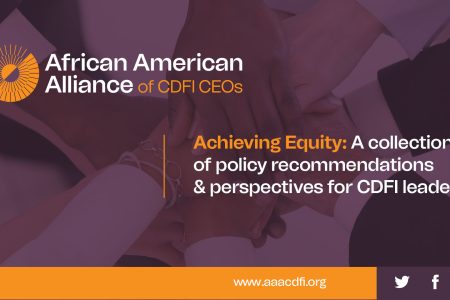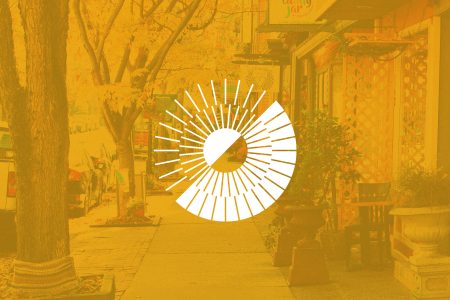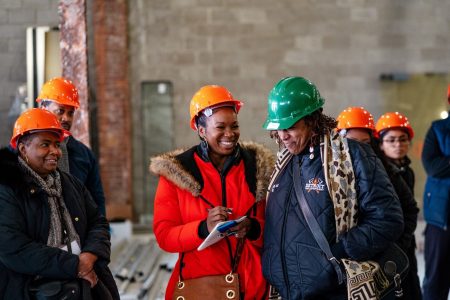ECONOMIC RESILIENCE AND THE COMMITMENT TO COMMUNITY DEVELOPMENT: AN INTERVIEW WITH WATCHEN BRUCE, PRESIDENT AND CEO OF BALTIMORE COMMUNITY LENDING
Economic resilience means more than providing financial services and financial education to those who are underserved. It means an investment in leadership development, physical capital, building of human capital, and efforts to create positive perceptions of the community in which you serve. And it means doing so with a high level of commitment over a long period of time. For Baltimore Community Lending (BCL), President and CEO Watchen Bruce is that person.
Born in Liberia in a farming community, Watchen immigrated to the United States, attending the University of Houston and later receiving a master’s degree in Business Management from the University of Massachusetts. She began her career as loan officer for the 1st International Bank of Houston in 1981 before being recruited by the Bank of New England. Following her time at the Bank of New England, Watchen transitioned to the federal loan home bank in Boston, where she was the only black home loan officer at the time. Watchen credits the mentorship of a supervisor as an instrumental force who encouraged her to ask questions, push the bank to diversify and improve outreach to minority communities. “Communities of color often receive information differently,” said Watchen. “You must meet people where they are and engage through the mediums that matter to them, whether that is the churches they attend or the radio stations they listen to. You must understand someone’s community to determine the resources they need and how you can increase access to them.”
Following her time in Boston, Watchen moved to D.C. to work with Neighbor Works America and PNC Bank, consulting with CDFIs and providing lending to community groups. In her role with PNC Bank, Watchen provided capacity building, technical assistance, and financial management training to underserved and low-income communities. Additionally, as a development advisor she managed economic development projects, lending, and investment programs for the community development-banking group, including a $100 million equity fund to invest in economic development projects in low-income communities. However, it was the opportunity to return to Liberia as part of USAID that served as a full circle moment for Watchen. Serving as chief of party on the $3.5 million USAID-funded Investing for Business Expansion (IBEX) , Watchen worked as “a liaison between the Government of Liberia, USAID, and other key stakeholders and implementing partners, ensuring an integrated vision among different actors and program components.” From 2012-2016 the IBEX initiative provided technical assistance to nine financial institutions, including 2 DCA partner banks, and trained 331 banking professionals on cash flow lending, underwriting, and risk and portfolio management to develop institutional capacity and strengthen financial portfolios and strategies. “Being able to bring my expertise back to Liberia was an unbelievable opportunity,” said Watchen. “To return to my home country and use my skillset to assist in business development was truly a dream come true.”
Watchen Bruce became the President and CEO of BCL in October 2019 and began the development of 5-year strategic plan right before the start of COVID-19 pandemic. Under Watchen’s leadership, Baltimore Community Lending maintained a strong and trusting relationship with the Baltimore community, deploying funds to small businesses, and participating in the Payback Protection Program (PPP) providing loan packaging to those who needed financial assistance. In 2020, during the height of the pandemic, BCL provided more than 5.6 million dollars in loans to real estate developers and small businesses owners who were unable to get a loan from the bank. During that same year, BLC funded the construction of 21 affordable and mixed development housing units in underserved Baltimore neighborhoods.
“Proving resources for our communities is something we have to take personally,” said Watchen. “To have inclusion of communities in wealth building,, we must advocate and be at the table to shape policy.” As a member of the African American Alliance of CDFI CEOs and a Black executive , Watchen believes she plays a crucial role as an advocate for funding allocation and policy change. “With the Alliance, we can move froward with one agenda, which gives us strength in numbers. People must participate in dialogue when it comes to affordable housing and wealth building, and the alliance amplifies our ability to advocate as individuals and as a collective of CEOs.”
As our nation pushes towards economic recovery, executives like Watchen Bruce continue to center the needs of community first, and her leadership with BCL reflects the prioritization of wealth building and economic opportunities for communities of color. For Watchen, policies are made to be transformed and we must consider how economic policy impacts us on a local, state, and federal level. Additionally, she encourages young people to discover their passion and seek out ways they can make an impact on the issues that matter to them.
“Young people must find their passion,” said Watchen. “I would encourage them to get involved at the local level, joining political action teams, whether it’s education, healthcare, housing or economic development.” As a leader in the CDFI field and a fierce advocate for social and economic policy, Watchen Bruce is paving the way towards greater financial prosperity for all communities.




